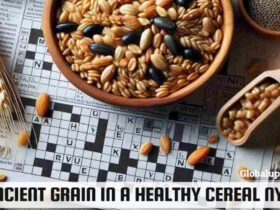Oral health is a cornerstone of overall well-being, influencing everything from your smile to your systemic health. Maintaining good oral hygiene goes beyond just cosmetic appeal; it plays a crucial role in digestion and even self-esteem. Among the various components of our dental anatomy, molarul—the molars—stand out as unsung heroes in our mouths.
Molarul refers specifically to those large teeth located at the back of your mouth, designed for chewing and grinding food efficiently. They are significant not only because they help you enjoy your favorite meals but also due to their vital role in maintaining jaw alignment and facial structure.
This article dives deep into the importance of molarul in achieving optimal oral health. You’ll learn about their anatomy, function, common problems associated with them, preventive measures you can take, treatment options available for issues that arise, and how keeping these powerhouse teeth healthy impacts your overall life quality. Whether you’re brushing or flossing today—or perhaps contemplating that next dentist visit—understanding molarul will empower you to prioritize this often-overlooked aspect of dental care.
Anatomy and Function of Molarul
Molarul, or molars, are the large teeth located at the back of your mouth. They usually come in groups of three on each side of both jaws. Their broad and flat surfaces are designed specifically for grinding food into smaller pieces.
These teeth play a vital role in chewing. When you eat, molarul crush and grind tougher foods like meats and vegetables, making them easier to swallow and digest. This process is crucial for effective digestion.
Unlike incisors that cut food or canines that tear it apart, molarul excels in handling bulkier meals due to their unique shape. Premolars also assist with chewing but don’t have the same power as molars. This specialized function highlights how essential molarul is for overall oral health and proper nutrition.
Molarul’s Role in Maintaining Oral Health
Molarul plays a vital role in chewing efficiency. These large, flat teeth are designed for grinding food into smaller pieces, making the digestive process easier. When we chew effectively, it aids in breaking down nutrients that our bodies need.
Moreover, molarul helps prevent tooth misalignment. They act as anchors within our dental structure; their proper alignment ensures that other teeth remain correctly positioned. A stable bite reduces the risk of discomfort and jaw strain over time.
Additionally, healthy molarul supports overall jaw structure. Well-functioning molars maintain facial symmetry and support surrounding tissues. This contributes to a balanced aesthetic appearance and can even enhance confidence when smiling or speaking with others. Their importance extends beyond mere functionality; they play an essential part in your overall oral health journey.
Must Read:
Common Molarul Problems
Cavities are among the most common issues affecting molarul. Due to their unique structure and placement, molars can trap food particles, leading to decay if not properly cleaned. Regular brushing and flossing greatly reduce this risk.
Gum disease is another significant concern for molar health. Periodontal disease can cause the gums to recede, exposing more of the tooth surface and making it vulnerable to infection. This condition often results in discomfort and may lead to tooth loss if untreated.
Missing molars create a ripple effect in oral health. The absence of these crucial teeth can result in misalignment of remaining teeth, affecting bite function and overall aesthetics. Replacing lost molars with implants or bridges is essential for maintaining proper jaw structure and preventing further dental issues down the line.
Preventing Molarul Issues
Maintaining healthy molarul requires dedicated oral hygiene practices. Focus on brushing twice a day, using a soft-bristled toothbrush. Pay special attention to the back teeth, where food particles tend to gather. Flossing is essential; use waxed dental floss to slide easily between your molars and remove plaque buildup.
Nutrition plays a vital role in supporting molar health. Incorporate foods rich in calcium, such as dairy products, leafy greens, and almonds. Crunchy fruits and vegetables like apples and carrots can help clean teeth naturally while providing important vitamins.
Regular dental check-ups are crucial for preventive care. Visits every six months allow your dentist to identify potential issues early on and provide professional cleaning that removes stubborn tartar from those hard-to-reach molars. Investing time in these habits ensures strong, healthy molarul throughout life.
Treatment Options for Molarul Problems
When it comes to treating molarul problems, various options exist to restore their functionality and health. For cavities, fillings are often the first line of defense. Dentists remove decayed material and use composite resin or amalgam to fill the void. Crowns may be required for extensive damage, encasing the entire tooth for added strength.
For severely infected molars, root canals become essential. This procedure involves removing infected pulp tissue from inside the tooth. After cleaning and disinfecting, a filling seals it off to prevent future issues.
If molars are lost due to decay or injury, implants and bridges offer effective solutions. Implants act as artificial roots that support crowns placed on top. Bridges replace missing teeth using adjacent healthy teeth for support—restoring both function and appearance seamlessly.
The Connection Between Molarul Health and Overall Health
The health of your molarul extends beyond just oral hygiene. Studies show a significant link between poor molar health and systemic conditions like diabetes and heart disease. Inflammation from gum disease can contribute to insulin resistance, complicating diabetes management.
Moreover, the bacteria that flourish around neglected molars may enter the bloodstream, potentially impacting cardiovascular health. This connection highlights the importance of maintaining strong molar health.
Daily life is also influenced by how well your molars function. Difficulty chewing can lead to dietary restrictions, affecting nutrition over time. Similarly, problems with clarity in speech arise when molars are compromised or missing.
These factors underscore why caring for your molaul isn’t merely about having a bright smile; it’s integral to overall wellness and day-to-day living experiences.
Tips for Maintaining Healthy Molarul
To keep your molarul in top shape, effective brushing and flossing are essential. Aim for a soft-bristled toothbrush and focus on cleaning each surface of the molars at least twice daily. Don’t forget to use dental floss—this helps remove food particles stuck between those hard-to-reach areas.
Incorporating fluoride into your oral routine can be a game-changer. Fluoride strengthens tooth enamel, making it more resistant to decay. Dental sealants also act as protective barriers against cavities by covering the chewing surfaces of molars.
Lifestyle choices matter too. Habits like teeth grinding or using your teeth as tools can severely damage your molars over time. Be mindful of these behaviors, and consider stress-reduction techniques if grinding is an issue for you. Prioritizing these practices will go a long way toward maintaining healthy molarul throughout your life.
Conclusion
Molarul plays a vital role in our overall oral health. These powerful teeth are essential for chewing and grinding food, contributing significantly to digestion. They also support our facial structure and help maintain proper jaw alignment.
Keeping molarul healthy is important for preventing cavities and gum disease, which can lead to more serious dental issues. Regular brushing, flossing, and routine dental visits are crucial practices that can protect these key players in your mouth.
The connection between the health of your molarul and systemic health cannot be overlooked. Maintaining strong molars not only enhances daily activities like eating or speaking but may also influence the risk of conditions such as diabetes or heart disease.
Prioritizing oral hygiene with effective techniques tailored for molar care will go a long way in preserving their integrity. Simple lifestyle changes can make a huge difference too—avoiding harmful habits is just as important as good dietary choices rich in nutrients that support tooth strength.
By focusing on maintaining your molarul’s health today, you’re taking significant steps towards securing a brighter future for both your smile and overall wellbeing. Your proactive efforts now will pay off later by enhancing your quality of life—and that’s something worth striving for every day!















































Got a Questions?
Find us on Socials or Contact us and we’ll get back to you as soon as possible.